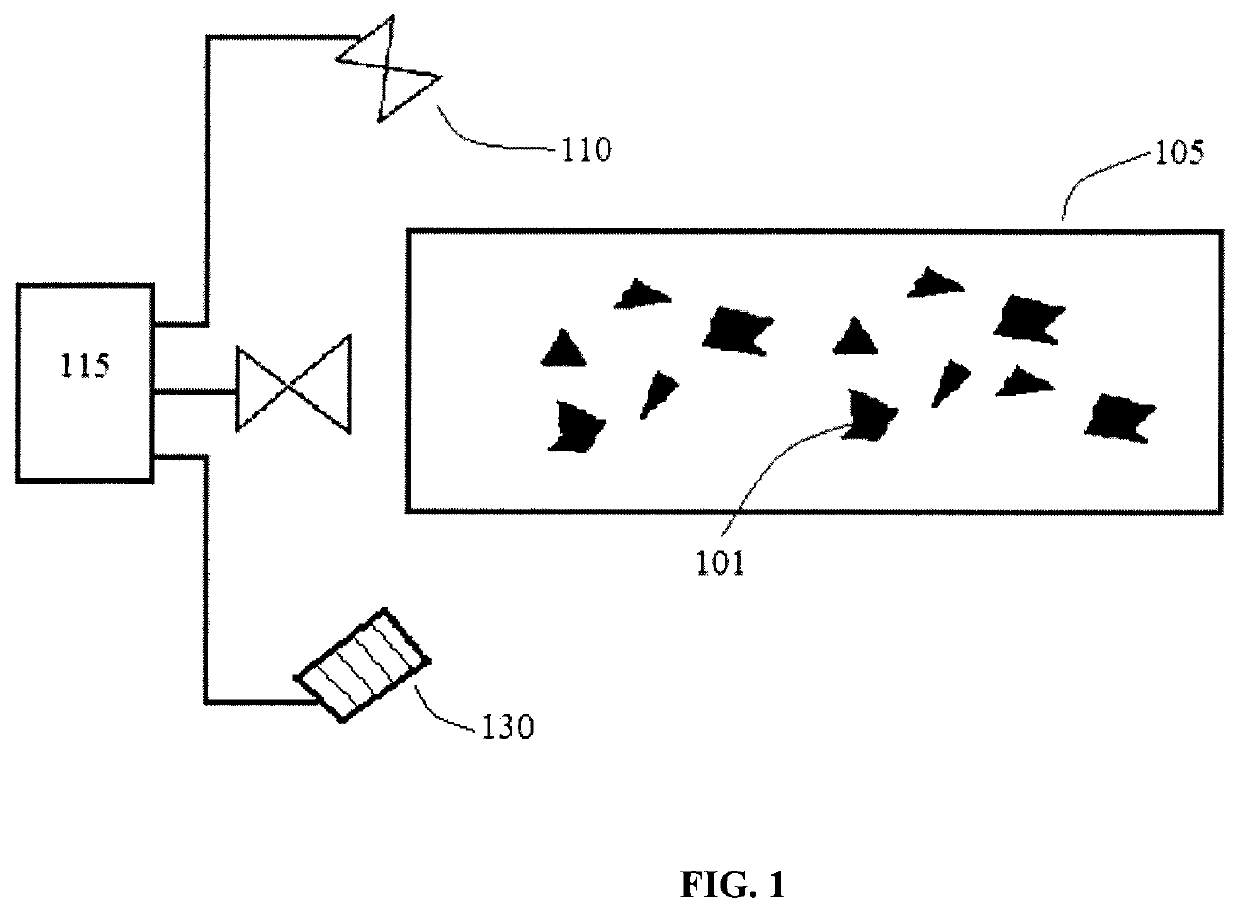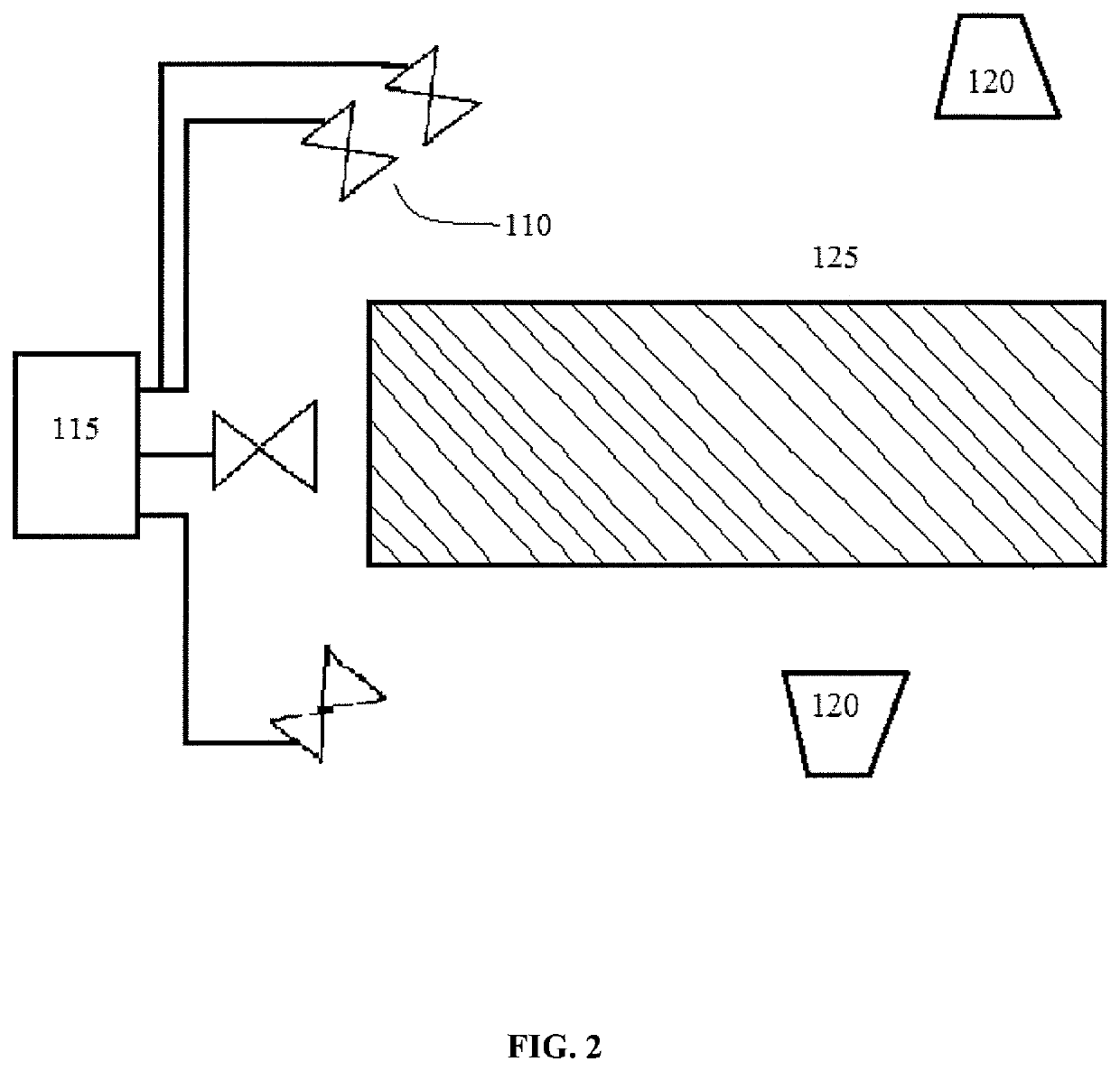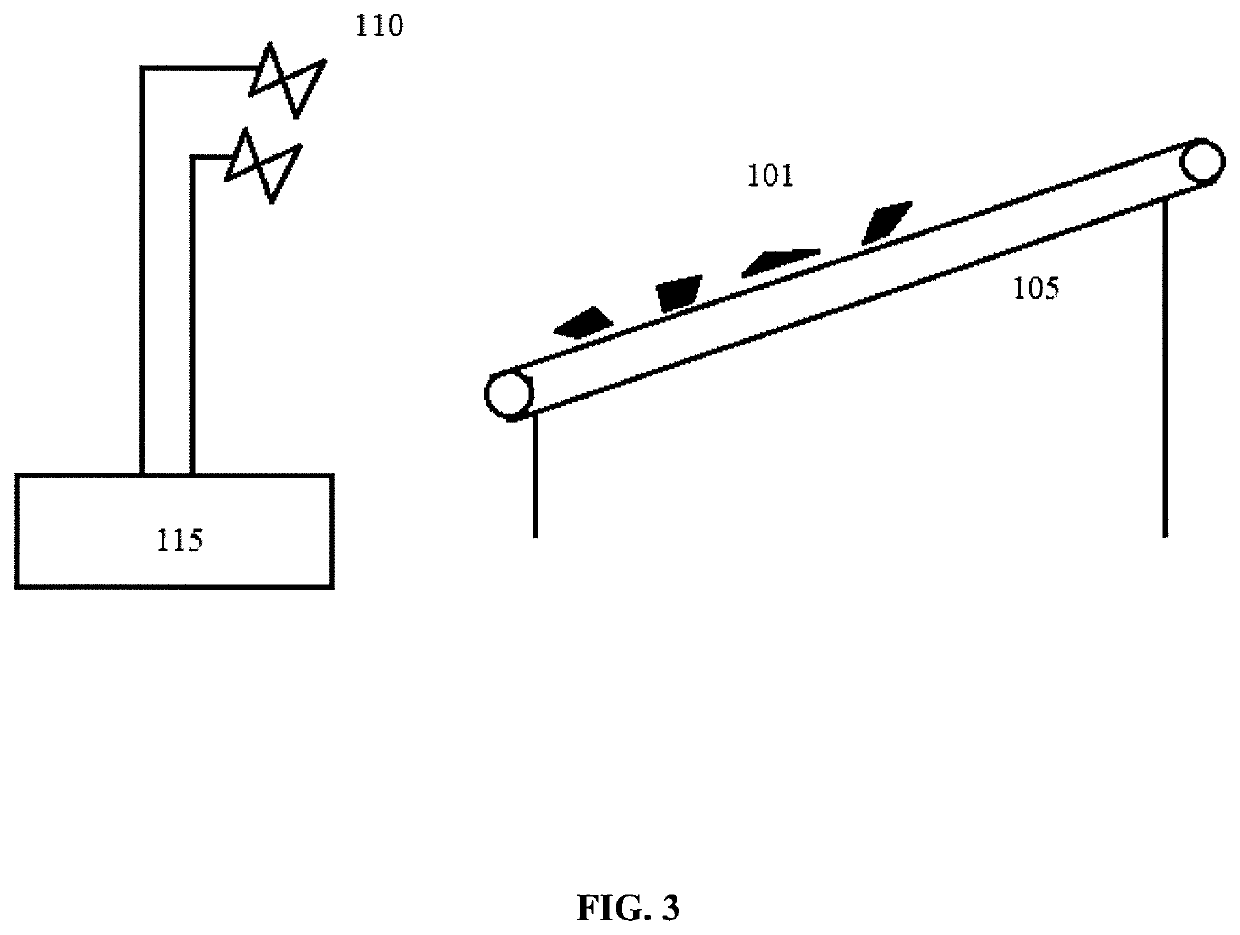System and method for estimating cutting volumes on shale shakers
a technology of shale shakers and cutting volumes, which is applied in the field of system and method for estimating cutting volumes on shale shakers, can solve the problems of difficult monitoring of cuttings from fluids using classical instruments, significant portion of rig activities and sensing problems remain difficult to measure with classical instruments, and the process of separating cuttings from fluids may be difficult to monitor using classical instruments, so as to improve safety, improve performance, and reduce costs
- Summary
- Abstract
- Description
- Claims
- Application Information
AI Technical Summary
Benefits of technology
Problems solved by technology
Method used
Image
Examples
Embodiment Construction
[0015]The shale shaker video monitor (SSVM) system may consist of a shale shaker table 105, shaker table screen 125, at least one and preferably more than one camera or other imaging device 110 configured to include a view of the shaker table 105, and a processor 115 configured to visually identify drill cuttings 101 as they approach and / or fall off the edge of the table 105. In a preferred embodiment, two or more cameras 110 with known locations may be used in order to provide substantially stereo vision. Alternatively, RGB-D cameras, ranging cameras, and / or other distance sensing equipment 130, such as LIDAR, may be used. Depending on the speed of the shaker 105 and / or the rate at which the cuttings 101 are moving, the camera(s) 110 may collect frames at rates between 0.003 Hz (1 frame per 5 minutes) and 30 Hz. In some embodiments, the camera(s) 110 may collect frames at rates as low as 0.017 Hz (1 frame per minute), 0.03 Hz (1 frame per 30 seconds), or 0.1 Hz (1 framer per 10 sec...
PUM
 Login to View More
Login to View More Abstract
Description
Claims
Application Information
 Login to View More
Login to View More - R&D
- Intellectual Property
- Life Sciences
- Materials
- Tech Scout
- Unparalleled Data Quality
- Higher Quality Content
- 60% Fewer Hallucinations
Browse by: Latest US Patents, China's latest patents, Technical Efficacy Thesaurus, Application Domain, Technology Topic, Popular Technical Reports.
© 2025 PatSnap. All rights reserved.Legal|Privacy policy|Modern Slavery Act Transparency Statement|Sitemap|About US| Contact US: help@patsnap.com



